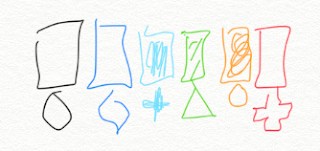Caveats:
A reminder that all my favourite coaching tools - free, online, or other - need to be applied with the sensible cautionary advice from statistician George EP Box: "all models are wrong but some are useful". Remember also that this is about "them" and their perception - not you! I make sure to tell individual coachees, teams and team leaders these things before giving them homework or some brief presentation on Zimbardo's Time Perspective theory.
I was fortunate in 2014 to attend a Professor Philip Zimbardo talk where he introduced (me) to several topics including the The Time Paradox: Using the New Psychology of Time to Your Advantage (UK) (or US). With the Time Paradox, Zimbardo's research and theory focuses on Post Traumatic Stress Disorder (PTSD) sufferers and how the new theory of time helps them "catch up" with their new current reality. Another great book about PTSD and help for sufferers is from Peter Levine - Waking the Tiger: Healing Trauma - The Innate Capacity to Transform Overwhelming Experiences (UK) (or US) - which explains somatic experiencing and was my first introduction to the 3 instincts humans face when stressed - the familiar "fight", "flight" AND the 3rd one "freeze". The research in this space is amazing and continuously evolving to help us understand us and to help those who suffer.
I recommend both books to anyone in any situation - not least because sooner or later you will experience 1 or more of the top 10 stressful events in life and having any knowledge to help you deal with them is invaluable. And also because modern life is so full these days of multiple minor stressors and we've learned that all the minors add up substantially even without a top 10 stressor.
And upon receiving some feedback on this tool, I believe both books are mandatory reading for any coach deploying this free test.
Prof Zimbardo is a wonderful speaker - if you get the opportunity to watch/listen/learn - take it! Stories from his (in)famous 1971 Stanford Prison Study (anyone who studies psychology or those who want to try understand how war atrocities are committed by normal people reads about the Stanford Prison Experiment) and his own early childhood facing near certain death in a hospital ward surrounded by other dying children (amongst other very memorable anecdotes) are incredible.
Here's a much condensed Ted version of his new theory of time talk.
I believe the theory can be applied to anyone no matter what their current psychological disposition is. I mean - who wants to live a half-step behind, or a half-step ahead of current reality? Who wants to be sure they are actually "living in the moment"? I reckon everyone, upon reflection, sees the benefit of being present, preferably present in the moment.
In my coaching practice - I meet a lot of people who want to know. They have deep questions about some past event or current lifestyle "choices" they seem to fall into habitually. They want to know if they are practicing enough mindfulness meditation. They want to know if they are truly self-aware. How does anyone but the Buddha know? Anyway, my clients - like most people - want to know if they're okay! (yes they are, and not because I suggested that they completed an online test!)
Step 1:
Go to http://www.thetimeparadox.com/surveys/ - print the graph manually and keep for later. Or better still, you can save it on computer, my Macbook has a great and good-enough editing tool in the form of Preview!)
Step 2:
Do both free online tests!
Manually plot the assessments on the survey graph paper or pdf
Step 4:
Discuss the gap between the "Ideal Time Perspective" and the coachee's results.
This is critical to get right - it is the coachee's understanding and interpretation of the gap that matters, and it is the coach's role to suggest options to improve ONLY if required.
With more self-awareness of their time perspective, the coachee opens up possibilities to understand more about their historical events that affect their perspective on their workplace as well as how their vision of the future pulls them to a good place or not based on their behaviours. From there it is possible to figure out the steps to take to change as required.
For the coachee, this view can be used as input to their coaching plan, to set some goals to acquire new skills and new behaviours (eg too much Present Hedonism might be an indicator of too much "good time, live for the moment" attitude and not enough time invested in the future thinking or planning and from there creating).
Step 5:
Several people find watching The River of Time video - inspired by the time theory - calming, reassuring and helps them to slow down enough to catchup with current reality.
I recommend also to complete Johnson's free online personality test as well as the free online Belbin test.
Additional Resources:
A reminder that all my favourite coaching tools - free, online, or other - need to be applied with the sensible cautionary advice from statistician George EP Box: "all models are wrong but some are useful". Remember also that this is about "them" and their perception - not you! I make sure to tell individual coachees, teams and team leaders these things before giving them homework or some brief presentation on Zimbardo's Time Perspective theory.
I was fortunate in 2014 to attend a Professor Philip Zimbardo talk where he introduced (me) to several topics including the The Time Paradox: Using the New Psychology of Time to Your Advantage (UK) (or US). With the Time Paradox, Zimbardo's research and theory focuses on Post Traumatic Stress Disorder (PTSD) sufferers and how the new theory of time helps them "catch up" with their new current reality. Another great book about PTSD and help for sufferers is from Peter Levine - Waking the Tiger: Healing Trauma - The Innate Capacity to Transform Overwhelming Experiences (UK) (or US) - which explains somatic experiencing and was my first introduction to the 3 instincts humans face when stressed - the familiar "fight", "flight" AND the 3rd one "freeze". The research in this space is amazing and continuously evolving to help us understand us and to help those who suffer.
I recommend both books to anyone in any situation - not least because sooner or later you will experience 1 or more of the top 10 stressful events in life and having any knowledge to help you deal with them is invaluable. And also because modern life is so full these days of multiple minor stressors and we've learned that all the minors add up substantially even without a top 10 stressor.
And upon receiving some feedback on this tool, I believe both books are mandatory reading for any coach deploying this free test.
Prof Zimbardo is a wonderful speaker - if you get the opportunity to watch/listen/learn - take it! Stories from his (in)famous 1971 Stanford Prison Study (anyone who studies psychology or those who want to try understand how war atrocities are committed by normal people reads about the Stanford Prison Experiment) and his own early childhood facing near certain death in a hospital ward surrounded by other dying children (amongst other very memorable anecdotes) are incredible.
Here's a much condensed Ted version of his new theory of time talk.
I believe the theory can be applied to anyone no matter what their current psychological disposition is. I mean - who wants to live a half-step behind, or a half-step ahead of current reality? Who wants to be sure they are actually "living in the moment"? I reckon everyone, upon reflection, sees the benefit of being present, preferably present in the moment.
In my coaching practice - I meet a lot of people who want to know. They have deep questions about some past event or current lifestyle "choices" they seem to fall into habitually. They want to know if they are practicing enough mindfulness meditation. They want to know if they are truly self-aware. How does anyone but the Buddha know? Anyway, my clients - like most people - want to know if they're okay! (yes they are, and not because I suggested that they completed an online test!)
Step 1:
Go to http://www.thetimeparadox.com/surveys/ - print the graph manually and keep for later. Or better still, you can save it on computer, my Macbook has a great and good-enough editing tool in the form of Preview!)
Step 2:
Do both free online tests!
- Zimbardo Time Perspective Inventory - 61 questions - takes 10-30 minutes
- Transcendental-future Time Perspective Inventory - 15 questions - takes 5-10 minutes
Manually plot the assessments on the survey graph paper or pdf
Step 4:
Discuss the gap between the "Ideal Time Perspective" and the coachee's results.
This is critical to get right - it is the coachee's understanding and interpretation of the gap that matters, and it is the coach's role to suggest options to improve ONLY if required.
With more self-awareness of their time perspective, the coachee opens up possibilities to understand more about their historical events that affect their perspective on their workplace as well as how their vision of the future pulls them to a good place or not based on their behaviours. From there it is possible to figure out the steps to take to change as required.
For the coachee, this view can be used as input to their coaching plan, to set some goals to acquire new skills and new behaviours (eg too much Present Hedonism might be an indicator of too much "good time, live for the moment" attitude and not enough time invested in the future thinking or planning and from there creating).
Several people find watching The River of Time video - inspired by the time theory - calming, reassuring and helps them to slow down enough to catchup with current reality.
I recommend also to complete Johnson's free online personality test as well as the free online Belbin test.
Additional Resources:
- Philip Zimbardo - The Secret Powers of Time is a 44 minute youtube video that has about half of the content I originally learned during the talk I attended.
- RSA Animate: The Secret Powers of Time is a 10 min youtube video that has less content again, is focused on the theory, and the infographic drawn real-time is wonderful!






